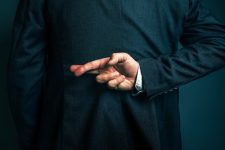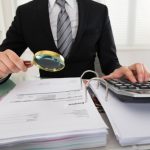Politician Charged with Forgery, Fraud and Lying Under Oath

Former Western Australian MP Barry Urban has been charged with a dozen dishonesty offences including forgery, giving false evidence and fraud offences following his resignation from parliament.
The story so far
Former Labor MP, Barry Urban, quit Western Australian Parliament earlier this year after the Procedures and Privileges Committee initiated an investigation into a medal he wore at an ANZAC Day service in 2017, which he claimed had been awarded to him by an overseas police force.
When it concluded the medal was actually purchased online, the Committee decided to delve deeper into Mr Urban’s background – allegedly finding he lied to the public and Parliament for many years about his police service and his education history, with pretences including:
- He had a degree from the University of Leeds,
- He had a Certificate of Higher Education in Policing from the University of Portsmouth,
- He was seconded from West Midlands Police in 1998 and served with the United Nations mission in the Balkans, where he provided security for a team investigating war crimes;
- He was posted a service medal by UK authorities; but lost it, and
- He served in a team of six British police officers, but could not name one of them or even say where they came from.
The Committee’s report recommended that Mr Urban be expelled from Parliament, but he resigned instead.
Shortly afterwards, police launched a criminal investigation.
The offences
Major Fraud Squad detectives have now charged Mr Urban with five counts each of uttering a forged document and giving false evidence before a Parliamentary committee, and one each of forging a record and attempted fraud.
Police have confirmed the five counts of uttering a forged document, and one count each of attempted fraud and forging a record, relate to materials and information that Mr Urban allegedly provided during applications involving the WA Police Force.
He will face court next month.
Forgery offences in NSW
Section 253 of the Crimes Act 1900 (NSW) contains the offence of ‘forgery’, which is where a person makes a false document intending to induce another to accept it as genuine, and through doing that:
- obtain any property belonging to another, or
- obtain any financial advantage or cause any financial disadvantage, or
- influence the exercise of a public duty.
The maximum penalty is 10 years’ imprisonment if the matter is finalised in a higher court such as the District Court, or two years if it remains in the Local Court.
Section 254 and 255 of the Act prescribe the same maximum penalty for anyone who respectively uses or possesses a false document for the same purposes.
And section 256 imposes maximum penalties ranging from three to 10 years for those involved in making or possessing equipment to manufacture false documents.
Commonwealth offence of forgery
Section 144.1 of the Criminal Code Act 1995 (Cth) contains prescribes a maximum penalty of 10 years in prison for four discrete forgery offences, which are where a person makes a false document with the intention that the person or another will use it to dishonestly:
- induce a third person in the third person’s capacity as a public official to accept it as genuine; and if it is so accepted, to dishonestly obtain a gain, dishonestly cause a loss, or dishonestly influence the exercise of a public duty or function; and the capacity is a capacity as a Commonwealth public official.
- cause a computer, a machine or an electronic device to respond to the document as if the document were genuine; and if it is so responded to, to dishonestly obtain a gain, dishonestly cause a loss, or dishonestly influence the exercise of a public duty or function; and the response is in connection with the operations of a Commonwealth entity.
- induce a third person to accept it as genuine; and if it is so accepted, to dishonestly obtain a gain, dishonestly cause a loss, or dishonestly influence the exercise of a public duty or function; and the false document is a false Commonwealth document.
- cause a computer, a machine or an electronic device to respond to the document as if the document were genuine; and if it is so responded to, to dishonestly obtain a gain, dishonestly cause a loss, or dishonestly influence the exercise of a public duty or function; and the false document is a false Commonwealth document.
Other Australian politicians who’ve spent time behind bars
If convicted, Mr Urban certainly won’t be the first Australian politician to spend time behind bars.
Former Australian Prime Minister John Curtin spent three days in prison for failing to comply with a compulsory medical certificate for conscription. He was elected Prime Minister 27 years later, in 1941.
Derryn Hinch spent stints of 12 and 50 days in prison, and was also sentenced to 5 months home detention. Each of Mr Hinch’s offences were for being in contempt of court by revealing information to the public that could prejudice a fair trial.
And Pauline Hanson spent 11 weeks in prison before her successful appeal against a conviction for electoral fraud.








